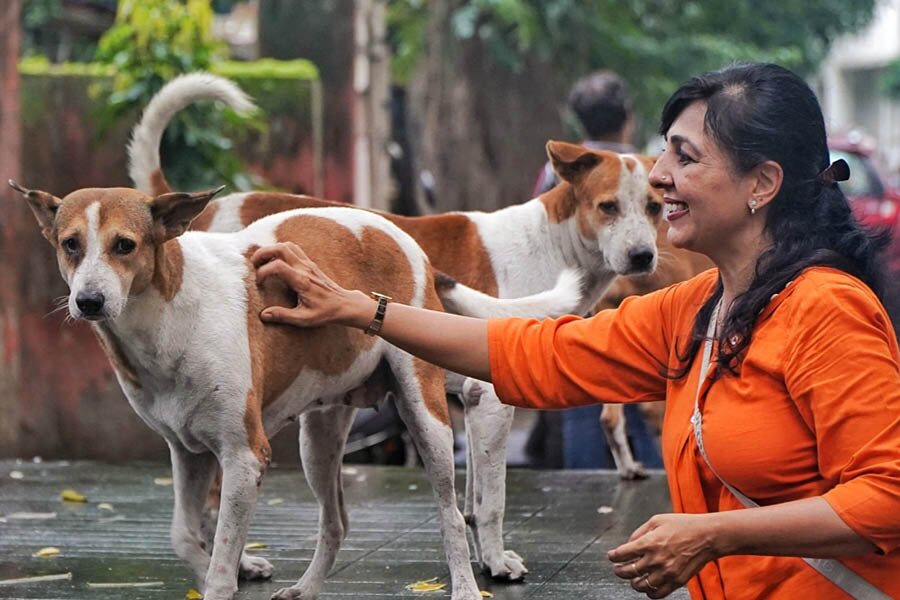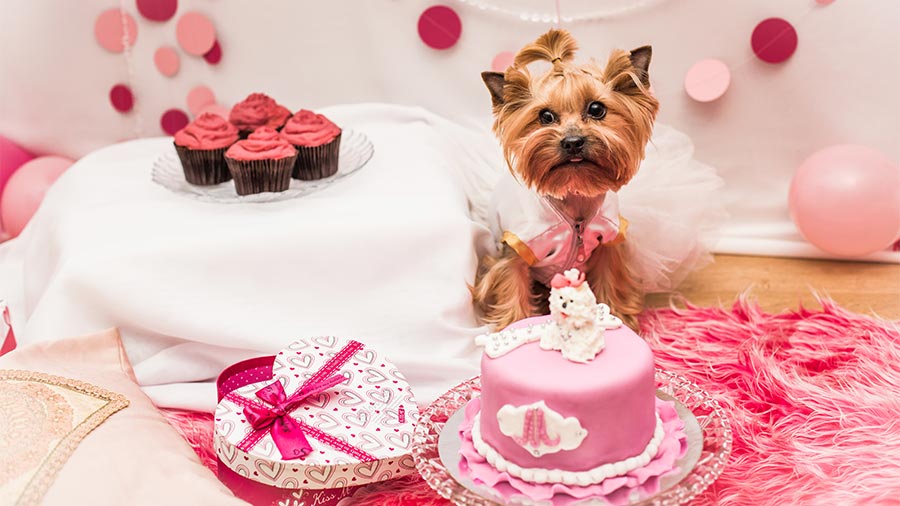Diwali is the festival of lights — a time for joy and celebration with family and friends, right? However, while festivities bring happiness to us, the noise, smoke from firecrackers and constant commotion can be distressing for our furry friends. The sound and pollution can trigger anxiety, fear and stress, increasing their heart rate and blood pressure. Street animals are also vulnerable during this period.
Pet parents and caregivers of community animals can help by showing compassion and offering support. As the festive season kicks off, two pet parents of My Kolkata have prepared a guide with expert tips to help you and your furry companions enjoy a safe and comfortable Diwali.
The first steps
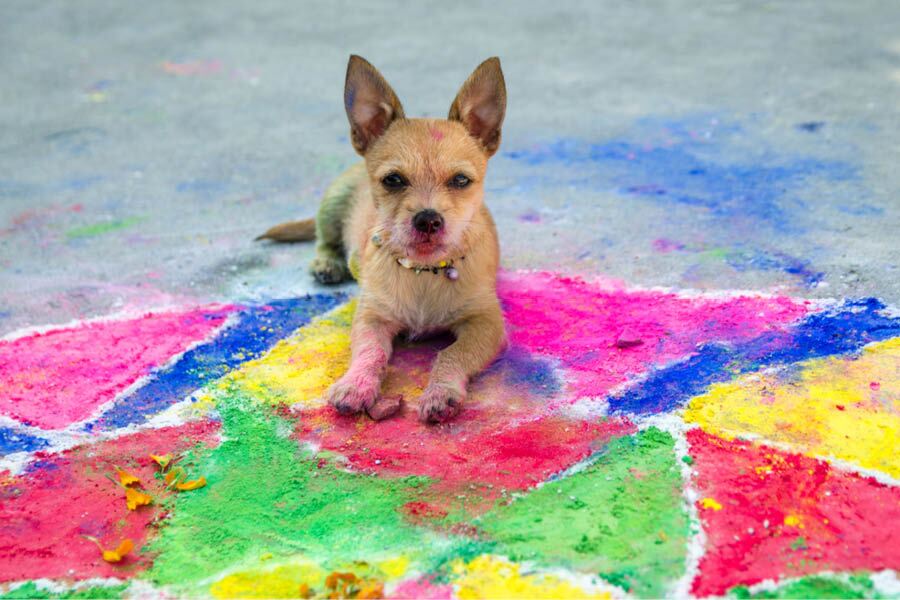
Rangoli colours can cause skin irritation and tummy upsets in dogs and cats
On Diwali, our homes are decorated with lights, diyas, flowers and rangolis. While these are beautiful festive traditions, it is important to be mindful when you have a pet at home.
- Make sure your pet cannot access diyas, candles, or any exposed wiring. Opt for battery-operated diyas or candles indoors, and keep sockets covered and wires out of reach
- If you create a rangoli, make sure pets cannot get to it to avoid accidental inhalation, licking or rolling in the colours, as this could cause skin and nasal irritation or stomach upset
- Keep festive human treats like sweets, jaggery and fried food out of reach as these can cause minor to major gastrointestinal issues in dogs and cats
- Stock up and/or replenish basic first aid essentials and regular medicines for minor cut and burn injuries, diarrhoea, vomiting
Keeping noise and smoke away
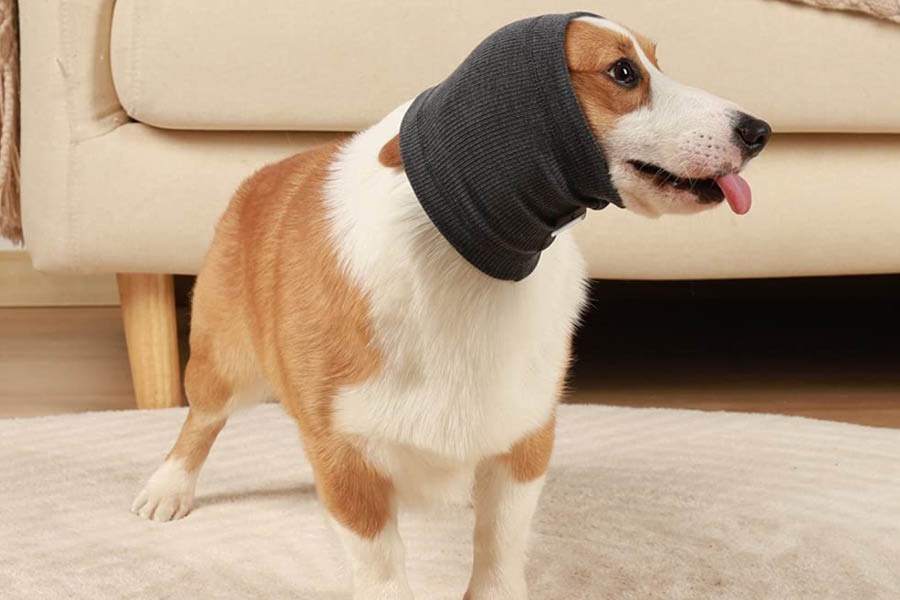
Training your pet to accept ear defenders or ear muffs can help in drowning away the noise of crackers
The noise of firecrackers is what scares the furries most. The smoke can irritate their nostrils, so the first step to help your dog relax is to minimise the noise and smoke. If you have a puppy, it is advisable to start sensitising them to different noises from an early age by playing sounds of household appliances and crackers and offering them comfort and treats as they get accustomed to it. Here are some tried-and-tested ways to help cut down on noise and smoke during the festive season:
- You can reduce outside noise by shutting doors and windows, while ensuring there is proper ventilation in the room. If possible, set the air conditioner to a higher temperature to help circulate the air better
- Play soothing music in the room, if that has helped calm your dog in the past
- If your pet allows it, consider using earmuffs or defenders. You can begin training your dog to get accustomed to these in advance
Creature comforts
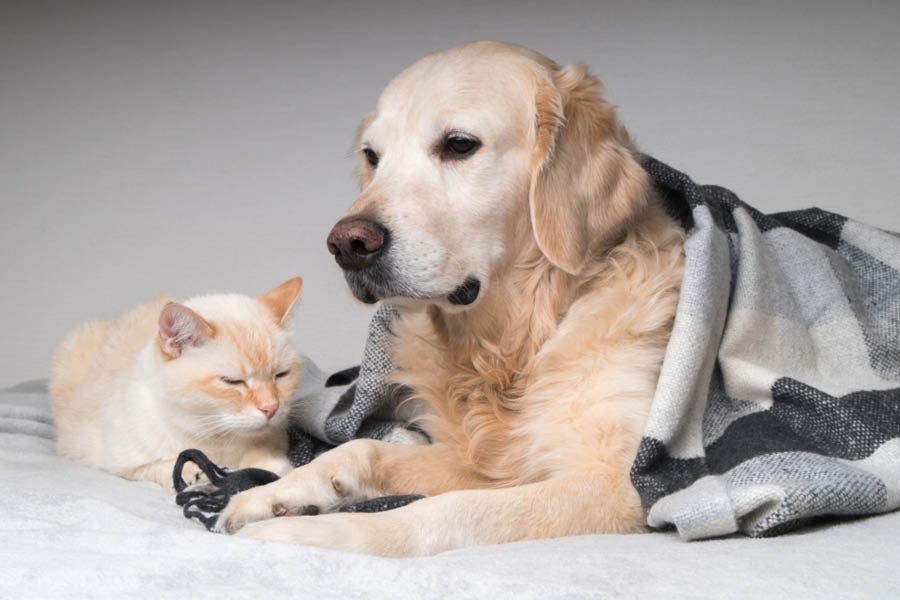
Familiar and comfort objects like blankets, beds or rugs can help calm your furries
As humans, we always feel most comforted when surrounded by our personal belongings, and it can be the same for most animals as well. Here are a few things you can do to make sure your canine companion feels comfortable:
- Make sure they have their bed/rug and blanket
- Keep their preferred corner of the house free of clutter and accessible, if possible
- Give them their favourite toys and keep some treats handy
Companionship and compassion
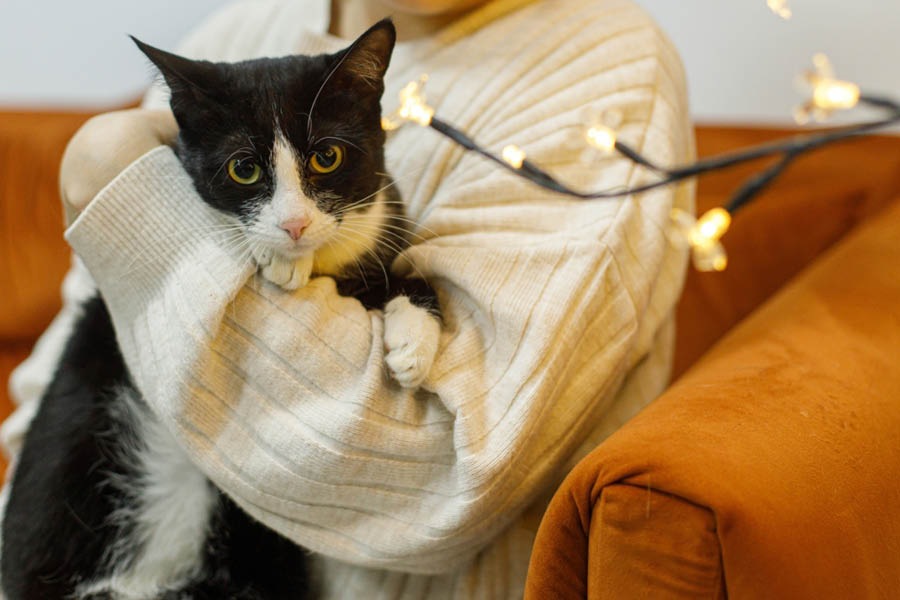
Some animals prefer cuddling with or cosying up to their humans for safety and comfort
Every pet has slightly different reactions to anxiety and stress. While some might prefer cuddling, others might want to get into a cosy spot and stay there. Here are a few things to keep in mind:
- Make sure you are at home and around your pet, since separation might heighten their anxiety
- If your furry friend prefers contact and cuddling, let them curl up next to you and offer soothing pets
- Veterinarian Dr Ashimi Das advises, “Let your pet seek comfort on your bed or under, when the noise gets louder. Do not force them out. If they find a spot safe, let them be.”
Managing meal timings
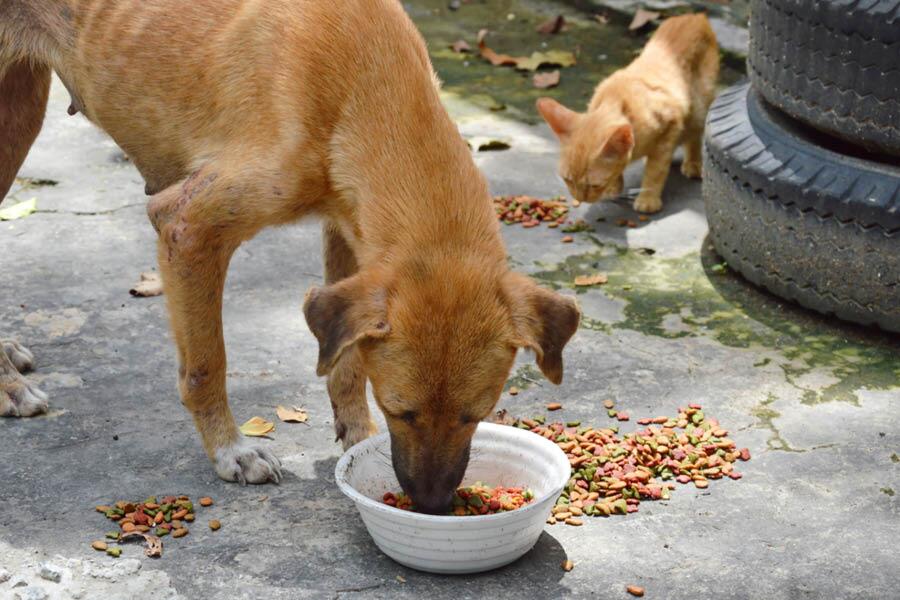
Plan meals of the day accordingly, bringing forward the dinner time
For most of our pets, dinner time becomes difficult during Diwali. As the night falls, the sound of fire-crackers increases. Fear often makes cats and dogs reject meals. To avoid this, you can plan meals of the day accordingly, bringing forward the dinner time.
Scheduling walks and nature calls
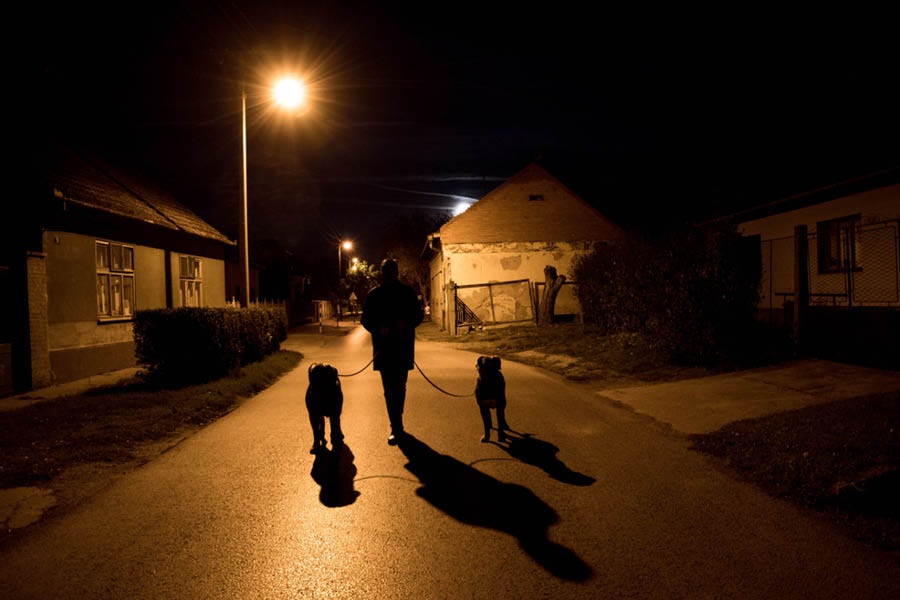
Schedule evening walks before or after peak noisy times on Diwali
For pets who are trained to do their toilet business outdoors after dinner, it is certainly a problem. This can be managed in the following ways:
- Plan dinner time to allow for a quick walk beforehand, ensuring you can return home before the noise intensifies. You can also take another short walk later in the evening once the noise and smoke have dissipated
- For puppies and kittens, consider toilet-training them to use designated areas in the house with the help of pee pads. However, this may not be effective for adult pets
Identifying acute stress and anxiety
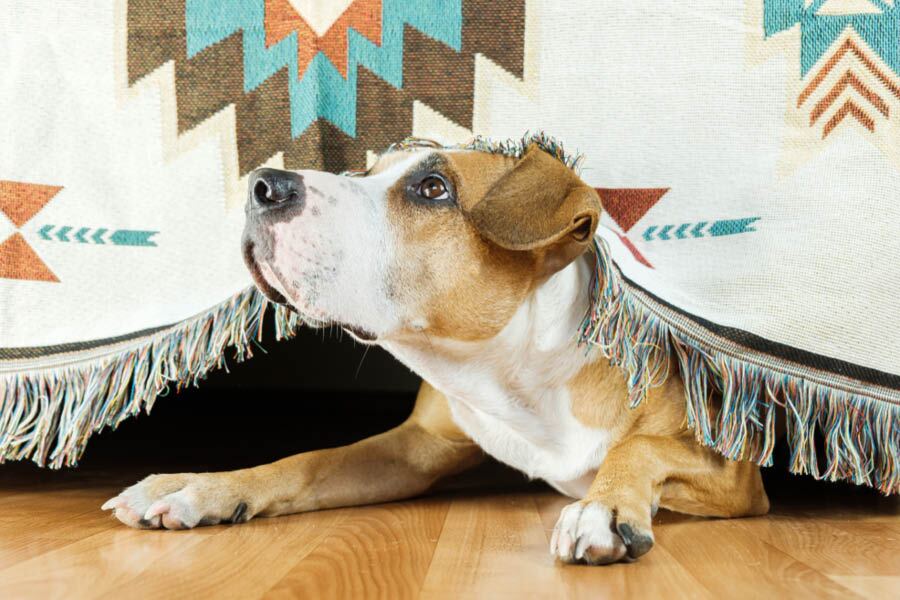
If your pet shows signs of extreme fear and anxiety, do take immediate action
Like humans, sometimes animals can be anxious by nature or experience extreme anxiety or stress in particular situations. According to Dr Das, the first step to help your pets is to identify signs of acute stress and anxiety. She explained, “Look out for signs like shaking, vocal reactions, uncontrolled urine or faecal excretion, hiding under the bed, etc.” In case your pet shows signs of extreme fear and anxiety, you will need to take immediate action. If you know your pet suffers during this time of the year, then Dr Das suggests administering an anti-anxiety medication with the advice of your vet.
Caring for the community dogs and cats
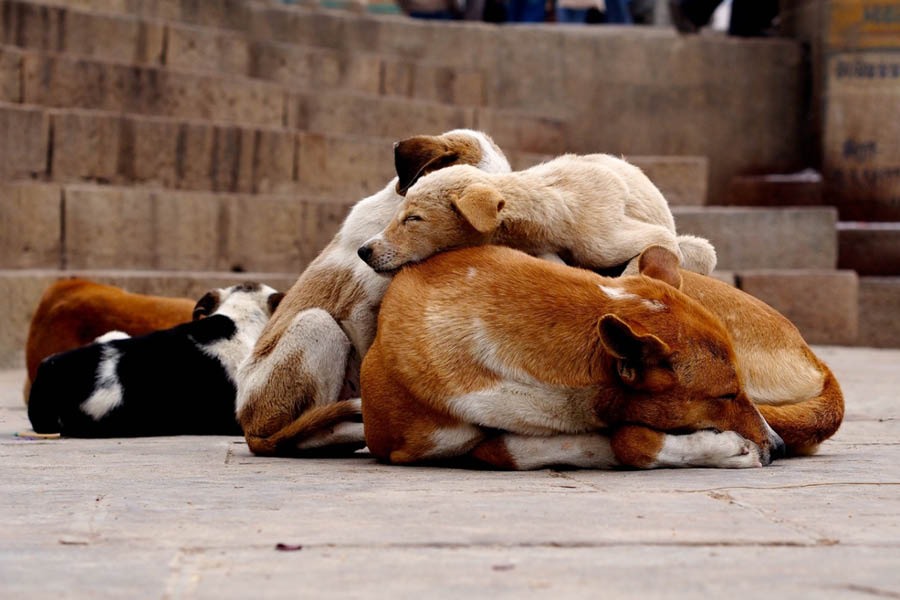
Providing a safe space to take shelter can go a long way to help community animals
This is also a time when our community animals are most vulnerable. They look for places to take shelter or flee from their territories, scared by the noise, making them targets for attacks by other animals or potential road accidents. If you feed and care for community dogs and cats or simply want to help keep the street animals safe during Diwali, here are a few things you can do:
- If you have a front porch or garage, or have space in your apartment building, leave the gates unlocked so the scared animals can take shelter, away from crackers and noise
- Animals tend to pant more when stressed and therefore need extra water. Make sure to keep a bowl of fresh drinking water and some dry food available for them
- Put reflective collars on your community animals, writing contact numbers on the collars so people can reach out if they find displaced animals. You can enlist the help of a paravet to fit the collars properly, ensuring they are not too loose or too tight
- Educate fellow humans and put up messages on society groups or building notice boards for people to be mindful of community animals, and include phone numbers to contact in case they find an injured, scared or displaced animal
- Keep first-aid essentials like Betadine solution, gauze, clean or distilled water, and burn and antiseptic cream handy so you can provide basic first aid, if needed, before contacting a vet
We wish you and your furries a happy and safe Diwali!

